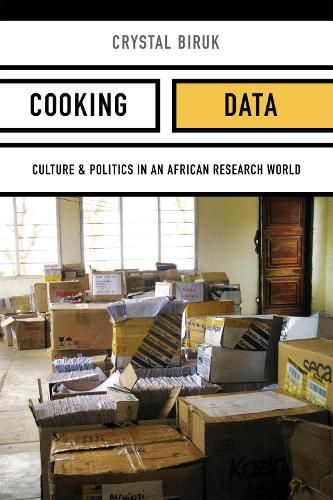Readings Newsletter
Become a Readings Member to make your shopping experience even easier.
Sign in or sign up for free!
You’re not far away from qualifying for FREE standard shipping within Australia
You’ve qualified for FREE standard shipping within Australia
The cart is loading…






In Cooking Data Crystal Biruk offers an ethnographic account of research into the demographics of HIV and AIDS in Malawi to rethink the production of quantitative health data. While research practices are often understood within a clean/dirty binary, Biruk shows that data are never clean; rather, they are always cooked during their production and inevitably entangled with the lives of those who produce them. Examining how the relationships among fieldworkers, supervisors, respondents, and foreign demographers shape data, Biruk examines the ways in which units of information-such as survey questions and numbers written onto questionnaires by fieldworkers-acquire value as statistics that go on to shape national AIDS policy. Her approach illustrates how on-the-ground dynamics and research cultures mediate the production of global health statistics in ways that impact local economies and formulations of power and expertise.
$9.00 standard shipping within Australia
FREE standard shipping within Australia for orders over $100.00
Express & International shipping calculated at checkout
In Cooking Data Crystal Biruk offers an ethnographic account of research into the demographics of HIV and AIDS in Malawi to rethink the production of quantitative health data. While research practices are often understood within a clean/dirty binary, Biruk shows that data are never clean; rather, they are always cooked during their production and inevitably entangled with the lives of those who produce them. Examining how the relationships among fieldworkers, supervisors, respondents, and foreign demographers shape data, Biruk examines the ways in which units of information-such as survey questions and numbers written onto questionnaires by fieldworkers-acquire value as statistics that go on to shape national AIDS policy. Her approach illustrates how on-the-ground dynamics and research cultures mediate the production of global health statistics in ways that impact local economies and formulations of power and expertise.